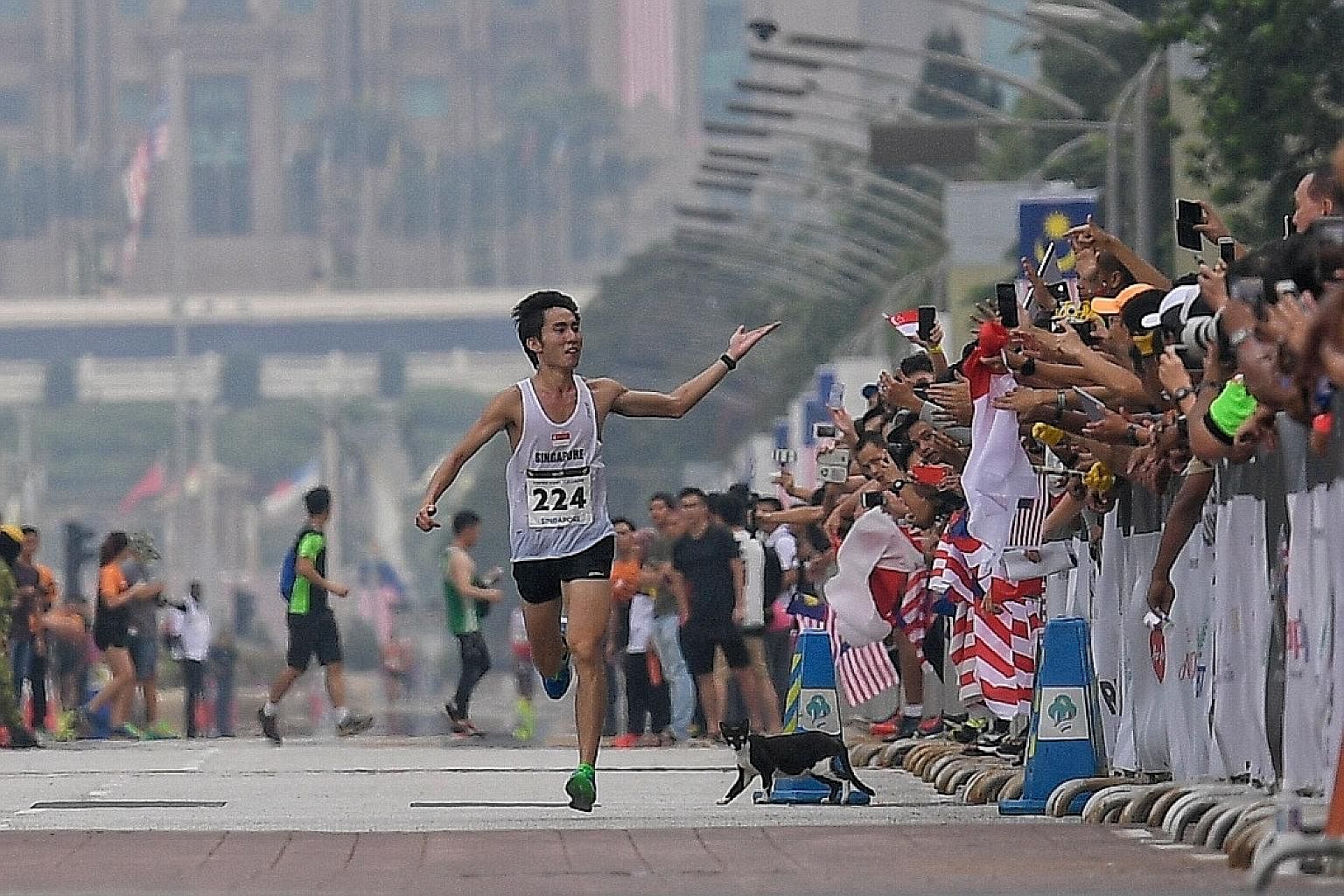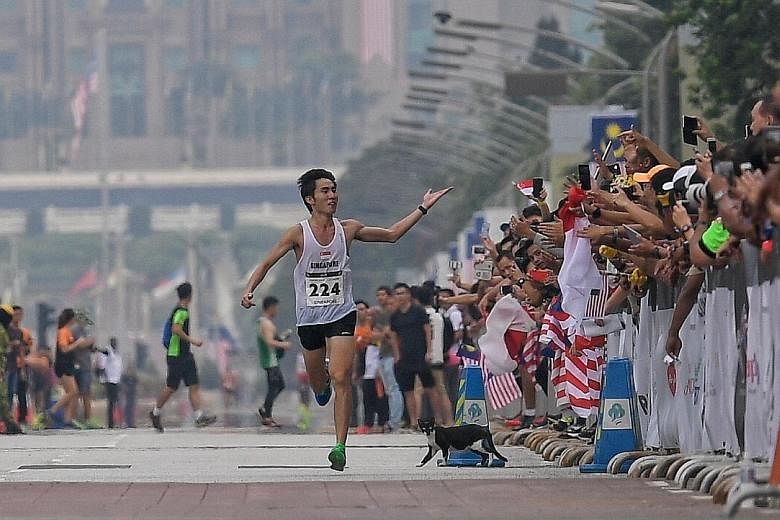Soh Rui Yong, the gifted marathoner, has a talent for running on roads and sometimes also into trouble. A 26-year-old maverick with a wide smile and fast feet, he seems to rarely meet a rule he isn't in disagreement with. It makes him a garrulous grandstander for some but a brave challenger of the status quo for others.
Soh has sparred with fellow marathoners, mutinied against officials over sponsors and apparel at the SEA Games and now is protesting against the rule which requires him to give 20 per cent of the prize money he received for winning SEA Games gold back to his association. Some might be appalled and yet he's also clearly worth some applause.
If an athlete wins a SEA Games individual gold they earn $10,000 from the Singapore National Olympic Council in recognition of their feat. Eighty per cent of it is given to them and 20 per cent is deducted by the SNOC and awarded to the association. Sailors at a dinner at the 1995 SEA Games in Thailand were the first to raise the idea of contributing to their sport and as Low Teo Ping, the former sailing chief, recalls, they stated "it is important for us to give back". In time, the SNOC adopted a similar system and pegged the sum at 20 per cent.
Theoretically, it's a sweet rule. It acknowledges the partnership of athlete (performer) and official (planner), for rarely does the former emerge without some assistance from the latter. It also recognises that if the athlete was once lucky to be given funds and equipment to polish his talent, now he can help those who walk in his footsteps. It is more than just loving a sport, it is investing in it. And as Low says with an administrator's familiar sigh: "There's never enough money".
Whether athletes as a group agree to the 20 per cent going to the association, we're not entirely sure, for only a few have raised the issue in the past and in public they rarely protest for no one wants to appear selfish. And yet the athlete, who lives for years like an ascetic, who barely makes a living from sport, who knows the 20 per cent (or $2,000) he gives away could pay for two regional trips, is entitled to know where it goes and how it is spent by his association and if it is deserved.
The four athletes I spoke to, all SEA Games medallists from various sports, agreed with the 20 per cent rule, yet not without comment. One said: "Sometimes you don't know what they do with (the money)." Another said Soh had made her think of something she hadn't before. A third said: "It's quite reasonable... for federations that run their shop cleanly I think it's fine. But if there are a lot of problems within the federation it affects the athletes a lot."
By that logic, Soh is somewhat entitled to his annoyance for the athletics federation has not quite been a paragon of professionalism and even received a recent rebuke from Sport Singapore chief executive officer Lim Teck Yin. As Soh protested on Facebook: "For the 2017 SEA Games, my NSA - Singapore Athletics (SA) has not only failed to adequately help our athletes, but they have also hindered the performance of several athletes with continued infighting, turmoil, and poor administration."

The $10,000 the athlete receives - a gesture of goodwill not given in every country - is in a way earned. Soh must win to gain it. Similarly the 20 per cent for the association must also be acquired by merit. They must earn their share, they must plan and support, they must not distract and demoralise. And if they do fumble, the athlete has no real recourse beyond protest. He has to give the 20 per cent because he is not so much bound by a signed agreement but shackled by it. And so I like that Soh is at least rattling his chains.
But athletes have to be cautious. To ascend the moral high ground and have contempt for others in the same profession can be a tricky way to live. Secondly, if every athlete launches a protest and withholds their 20 per cent, using complaints both real but also flimsy and fabricated, chaos might ensue.
Right now this does not appear a widespread issue, yet one long-term solution offered by Yip Ren Kai, chair of the SNOC Athletes' Commission, is for accountability. "We need to be privy to where the money goes," he said. "The money collected needs to go into youth development."
I don't always agree with Soh but I admire him and other outspoken Asian athletes who take advantage of the platform of fame they briefly own. He makes people think and yet to rebel without pause is eventually to not be taken seriously. People will say, "Oh, not him again" and switch off.
Sport craves characters and Soh is a colourful one. But if he, who uses Facebook as a public loudspeaker to communicate, is to be a true leader, an athletic revolutionary, then he must not just speak for himself but gather others.
Go to meetings. Use less strident channels. Convince officials. Argue his case. Galvanise fellow athletes. Generate not just headlines but true change. As a two-time marathon gold medallist at the SEA Games, he knows about long journeys. And that the only per cent that counts for success isn't 20 but a 100.


